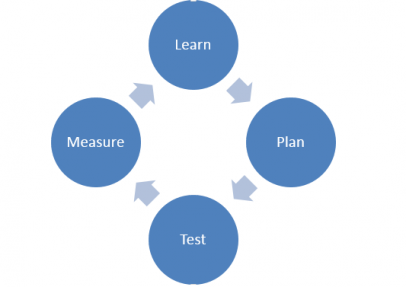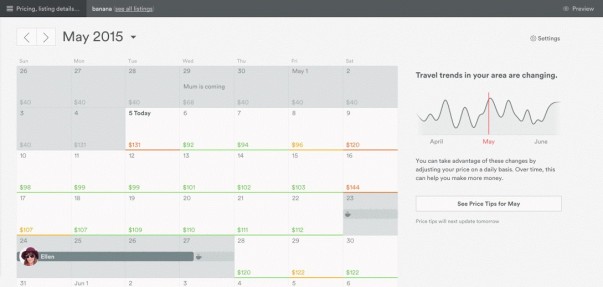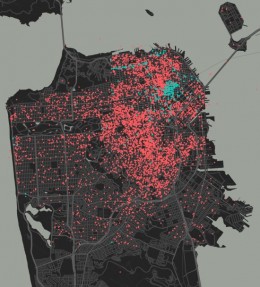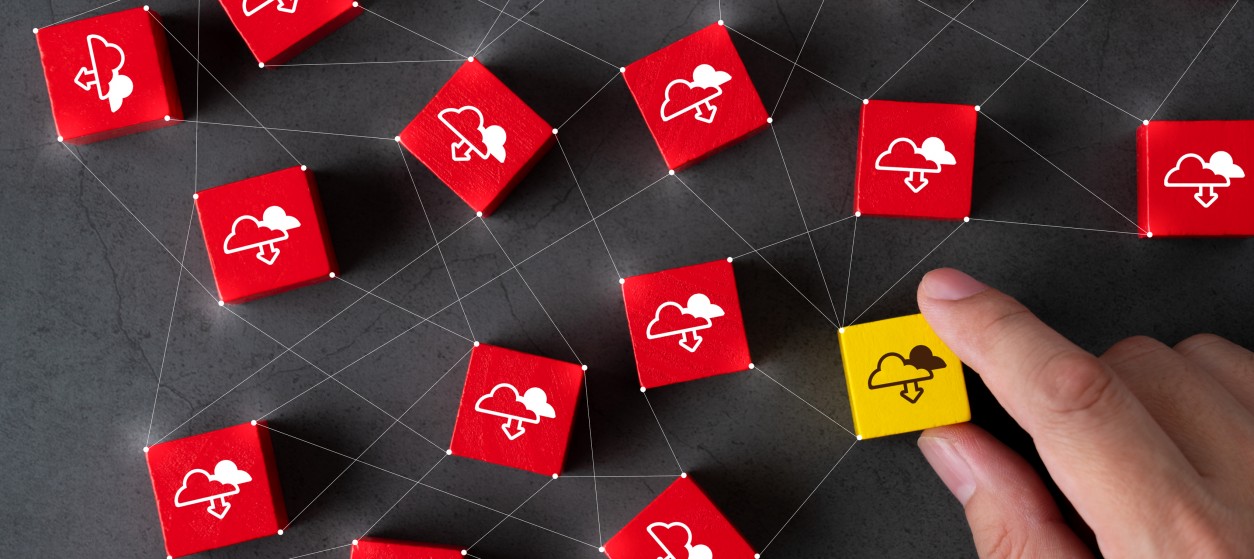No one needs an introduction to AirBnB.
With about 1.5 million listings on the site across 34,000 cities in 190 countries it offers way more choice at any price point than most major hotel chains combined.
And unlike previous innovations, AirBnB is driving this revolution by piggybacking on big data and predictive analytics among other things.
In fact one of their earliest hires, when the company was still working out of the founders’ apartment was a data scientist. This was back in 2008, when Big Data was not as trendy as it is now.
But the decision to make data a core focus of their product instead of cramming it in at a later stage has paid off handsomely for the startup which is now valued at more than $25bn.
AirBnB’s data philosophy
It’s tempting to look at data as simply numbers generated by impersonal algorithms running in the belly of the beast. But every data point represents decisions made by a human, and putting it in proper context can tell you a story.
For instance, take someone on AirBnB booking an apartment in London for two nights. That click doesn’t exist in vacuum.
As Riley Newman, AirBnB’s head of data science writes
…at Airbnb we characterize data in a more human light: it’s the voice of our customers. A datum is a record of an action or event, which in most cases reflects a decision made by a person. If you can recreate the sequence of events leading up to that decision, you can learn from it…This sort of feedback can be a goldmine for decisions about community growth, product development, and resource prioritization. But only if you can decipher it. Thus, data science is an act of interpretation …
AirBnB’s data backed decision making follows this framework
The quality of decision making improves as the cycle is repeated and iterated upon.
Types of data backed business decisions at AirBnB
At most organizations number crunching is a lagging activity. It is used to answer queries such as which product sold the most or what times of the year was best for business.
Visionary companies like AirBnB use data to make predictions, inform product decisions, and provide overwhelming value to users.
Here are some examples of AirBnB’s data led decisions.
1) Information on pricing
Because of its marketplace model price is one of the most sensitive and important factors which impact user growth. If the price is too high buyers won’t sign up. If the price is too low the seller might take their property off the site.
AirBnB looks at multiple variables while suggesting the price of a listing. It uses modeling to predict the optimum price each listing will get for every day of the year based on variables like location, time of the year, and amenities.
(Gif courtesy AirBnB)
It also uses an internally developed product called Aerosolve, nicknamed machine learning for humans to show hosts the probability of getting a higher pricing for their listing.
2) Expansion into new markets
When the US lifted long standing economic sanctions on Cuba AirBnB lost no time in listing Cuban properties on its site. This agility and nimbleness has driven much of its growth, along with expansion into neighborhoods where traditional accommodation options are not present.
Red shows AirBnB accommodation options in San Francisco. Blue shows traditional options. Image courtesy AirBnB
But how does it move so fast on the backend? After all, AirBnB is not only a search engine for rooms, but also a recommendation engine. It generates suggestions from the community on great places to stay, and uses locally generated editorial content to let the user explore the area right from within the site.
Part of how it does that is by building a complex and multi layered mapping infrastructure. It uses an internally developed tool called AT-AT to overlay a map with human interest data obtained by old fashioned research, natural language processing, and machine learning to throw up suggestions which are tailored closely to search string parameters.
3) Product design
Data plays an integral role in product design. The team runs multiple A/B tests to fine tune the UI.
The degree of customization is so fine grained that Singaporean users landing on AirBnB in the end of the year will see Southeast Asian properties listed for weekend getaways because data shows that Singaporeans tend to travel at the end of the year within the region for weekends.
Another example: AirBnB’s data crunching enables the site to offer tips on how hosts can better photograph their listings to maximum interest down to suggesting them to put red pillows in a photo, and serve up hosts who have a history of accepting last minute bookings at the top in search results for dates which fall in the immediate future.
Takeaways
Regardless of whether you are a ticket aggregator or a small independent bread and breakfast the lessons from AirBnB’s obsessive focus on data driven decisions are illuminating.
You might not have the resources or the terabytes of data AirBnB has, but you can still use data like reviews, booking trends, price history etc to make your site more useful, provide value to travelers and guests, and drive up your revenues and profits.













